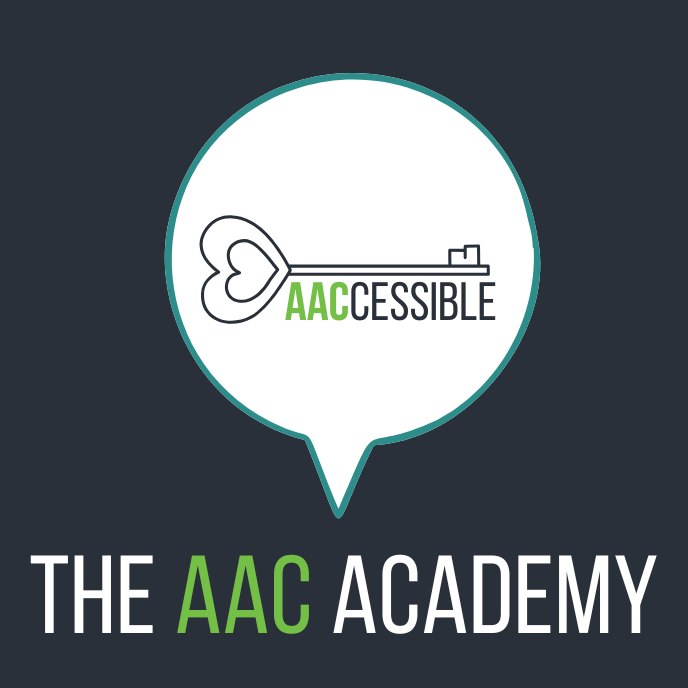AAC, Literacy & the SLP
bilingüeAAC: A Framework to Support AAC Intervention for Spanish-English Learners
This 2-hour, introductory course will provide an evidence-based, intervention framework to help AAC professionals and caregivers best support complex communicators from culturally and linguistically diverse backgrounds. As a participant in this course, you will explore how to identify communication needs for bilingual, Spanish-English learners, adding culturally responsive practices to your EBP, AAC toolbox. You will also learn how to implement Spanish/English AAC intervention plans based on emergent bilingual language development research. This course further aims to entice you to consider the sociocultural frameworks that aim to sensitively and effectively support the Spanish-speaking household, and to encourage families to use AAC in their native language to foster language development for ongoing, academic success.
WHAT'S INCLUDED
-
1 Module
-
Available On-Demand
-
CMH, Certificate Provided
-
Multimedia learning experience
-
Online classroom community
-
Loads of resources!
Bring cultural competence to your AAC toolbox.
Gain the knowledge and tools you need to support your bilingual clients and their families.
It's a smoother journey with a map.
Typical, bilingual development is the best map we have, and we'll use it well in this course.
Learning Objectives
Upon completing this course, learners will be able to:
1. Describe three types of bilingualism.
2. Identify and discuss at least three current issues, myths, and concerns in bilingualism.
3. Describe two evidence-based tools upholding Spanish AAC language building and learning.
4. Discuss three different cultural perspectives to consider when providing basic AAC intervention strategies.
5. Identify two tools to gather assessment and treatment planning information respectfully and in collaboration with families, caregivers, staff, and/or those closest to the AAC learner.
6. Describe three steps in the bilingueAAC cultural linguistic intervention framework.
Write your awesome label here.
Continuing Education Credit
This series offers eligible students a total of
2 certification maintenance hours (CMH) / Professional Development Hours (PDH)
This course fits the criteria for the 2 hour DEI coursework requirement initiated by ASHA starting January 2023.
2 certification maintenance hours (CMH) / Professional Development Hours (PDH)
This course fits the criteria for the 2 hour DEI coursework requirement initiated by ASHA starting January 2023.
Learn more about CMH/PDH (versus CEU's or continuing education units) on your course syllabus and on our CEU Page. All learners are encouraged to confirm that this course meets the requirements of their licensing board before purchasing.
Write your awesome label here.
Meet Your instructors
Alma Partida MS, CCC-SLP
Alma M. Partida is a bilingual and bicultural Speech-Language Pathologist specializing in AAC. Alma graduated from San Jose State where she received the Project AACes grant, which specialized her on AAC. She currently works in Northern California in the school setting with preschool and early elementary-aged students, where she is also their AAC consultant. Alma runs the Instagram account @AACForYouandMe and also spearheaded the Instagram account @DiverseAAC. She is also a community partner and lecturer at the new graduate speech-pathology program at CSUMB.
Maria De Leon MS, CCC-SLP
Maria De Leon is a bilingual Speech-Language Pathologist specializing in Augmentative Alternative Communication (AAC). She received her Bachelor’s degree in Sociology at the University of California Los Angeles (UCLA) and her Master’s degree in Speech-Language Pathology at San Francisco State University. She participated in “Project Building Bridges” and graduated with a specialization in culturally responsive AAC practices. Maria currently works at a non-profit organization as a speech-language pathologist providing AAC services to Southern California. She specializes in AAC evaluations, trials, and training to various facilities and entities, including training for the individual's family and circle of support. Before this, Maria was a speech pathologist in a private practice serving individuals with complex communication needs, she has 6 years of experience as an early interventionist and response to intervention (RTI) teacher providing services to students who required specialized instruction in the school setting. Her focus lies in giving back to communities like the one she grew up in and spreading information about best cultural practices in Speech-Language Pathology, practices where individuals of diverse cultural backgrounds are included and legitimized.
Melissa Tapia MS, CCC-SLP/L
Melissa Tapia is a bicultural and bilingual certified speech-language pathologist in the state of Illinois. She is a heritage Spanish speaker and believes that involving family and caregivers is essential for the success of her clients and provides individualized patient-centered care. She attended Illinois State University for both her undergraduate and graduate studies where she majored in Communication Sciences and Disorders and Spanish Language, Literature, and Cultures. She has 5+ years of experience working as a school-based SLP with a variety of student needs and diagnoses specializing in AAC, bilingualism, and speech sound disorders. Melissa also has worked 3+ years in early intervention speech and language services. Melissa has also obtained her Bilingual Special Education Teacher- Spanish license in the state of Illinois. Melissa is also the owner and founder of Hablame Speech Therapy where she focuses on working alongside bilingual families by providing therapies in their homes to help them gain access to communication in all modalities and be knowledgeable about how to best support their children.
Eunsey (Sarah) Lee, MS, CCC-SLP
Sarah is a Speech-Language Pathologist and AAC specialist currently holding her CA state license, LSH credentials, and ASHA membership, She has 13-years of experience as a school-based SLP and early intervention, working with PreK to adult clients with various physical and/or cognitive disabilities including Deaf/blind, CVI, Cerebral Palsy, Rett Syndrome, Down Syndrome, Autism, and Cri-du-Chat. She is well-versed and up-to-date in current communication apps, medical durable communication devices, educational software, and accessibility equipment. Sarah believes in evidence-based, innovative intervention strategies and synthesizing literature to practice. She has a MS in Speech-Language Pathology from Western Kentucky University and a MS in Neuroscience and Education from Teacher’s College, Columbia University with a focus on AAC and Autism.
Patrick Jones - Course author
Patrick Jones - Course author
Patrick Jones - Course author
Patrick Jones - Course author
